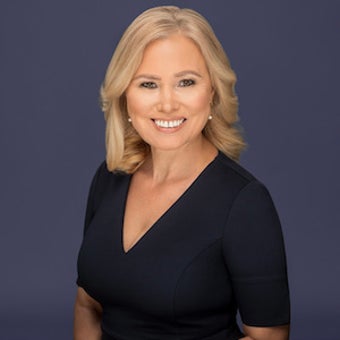Russia trying to ruin Ukraine's economy are 'forbidden tactics,' says Polish Foreign Minister
Polish Foreign Minister Radosław Sikorski provides his analysis of the Russia-Ukraine war as it marks its third Easter, the passing of the foreign aid package and his expectations for the upcoming NATO summit.
On Tuesday, Vladimir Putin was inaugurated for another six-year term as president amid the worst crisis in Moscow’s relations with the West over Russia’s invasion of Ukraine. During the traditionally ornate ceremony in the Kremlin, Putin called his compatriots a "united and great nation" and vowed to place Russia’s interests and security above anything else. Brimming with confidence, the Russian strongman punctuated his speech by declaring: "Together we will overcome all obstacles. We will fulfill everything we have planned. Together we will win."
Meanwhile, on the other side of the Atlantic, the top U.S. spy chief, DNI Avril Haines, told the Senate Armed Services Committee last week that the Russia-Ukraine war is "unlikely to end anytime soon," warning that Putin’s "aggressive tactics are likely to continue." That, despite the fact that Congress recently approved another multibillion-dollar military aid package for Ukraine to help it fight the Russians.
What is inside Putin’s mind at this time? Will the Russian dictator be deterred by our government’s unwavering commitment to fund Kyiv? What are his next steps?
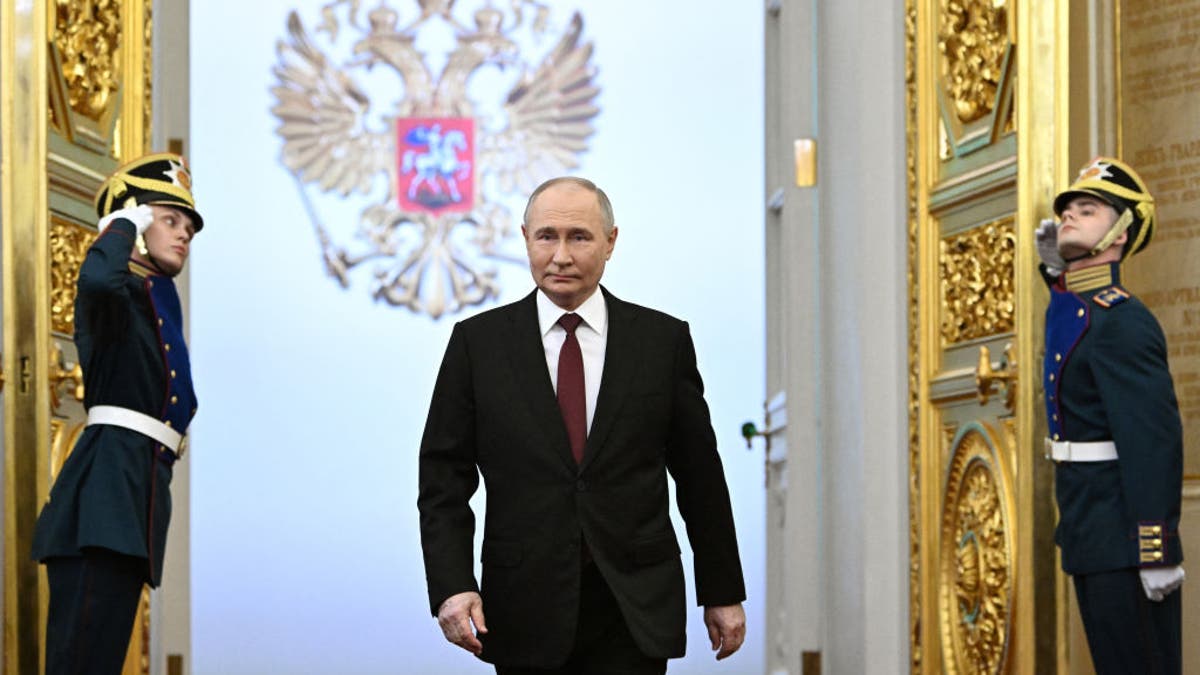
Russian President Vladimir Putin walks to his inauguration ceremony at the Kremlin in Moscow on May 7, 2024. (Sergei Bobylyov/Pool/AFP via Getty Images)
Having examined Russia’s force posture, the state of the Russian military and economy, declared strategic goals and threat perceptions, here is what we can expect from Putin, whose thinking I’ve studied and analyzed in the course of my intelligence career. I will also note what Putin will probably not do.
First, the Russian forces will highly likely initiate a major counteroffensive campaign in northeastern Ukraine. It's possible that it could begin right after the Victory Day Parade, the national holiday celebrating Russia’s defeat of Nazi Germany in World War II. Aiming to capitalize on Ukraine’s shortages in manpower, combat hardware and ammunition, the Russians will seek to break through the front lines by or during this summer.
To make this happen, Moscow is preparing 100,000 troops to join the front lines, consistent with the decree signed by Putin in December directing the Ministry of Defense to increase the armed forces by 170,000 additional personnel to the maximum strength of 1,320,000 servicemen. Moscow is also increasing its defense spending by almost 70% in 2024 from 2023.
Putin feels that the momentum is on Russia’s side theater wide, as Ukraine is outmanned and outgunned. This being said, he is almost certainly deeply concerned about a recent statement made by French President Emmanuel Macron to The Economist. Macron insinuated that he would send troops to Ukraine "if the Russians were to break through the front lines, if there were a Ukrainian request."
Aiming to deter NATO from deploying forces into the theater, Russia will hold military exercises involving tactical nuclear weapons. Putin personally ordered the drills to "practice for the preparation and deployment for use of non-strategic nuclear weapons," according to Russia’s Ministry of Defense.
While Russia routinely conducts strategic nuclear exercises, announcing them in advance, the public declaration made by Moscow of non-strategic nuclear drills is unprecedented. It is intended as a strategic signaling to leaders in Washington and NATO commanders to stay out of what Russia considers its strategic security perimeter, of which Ukraine is part in Moscow’s view.
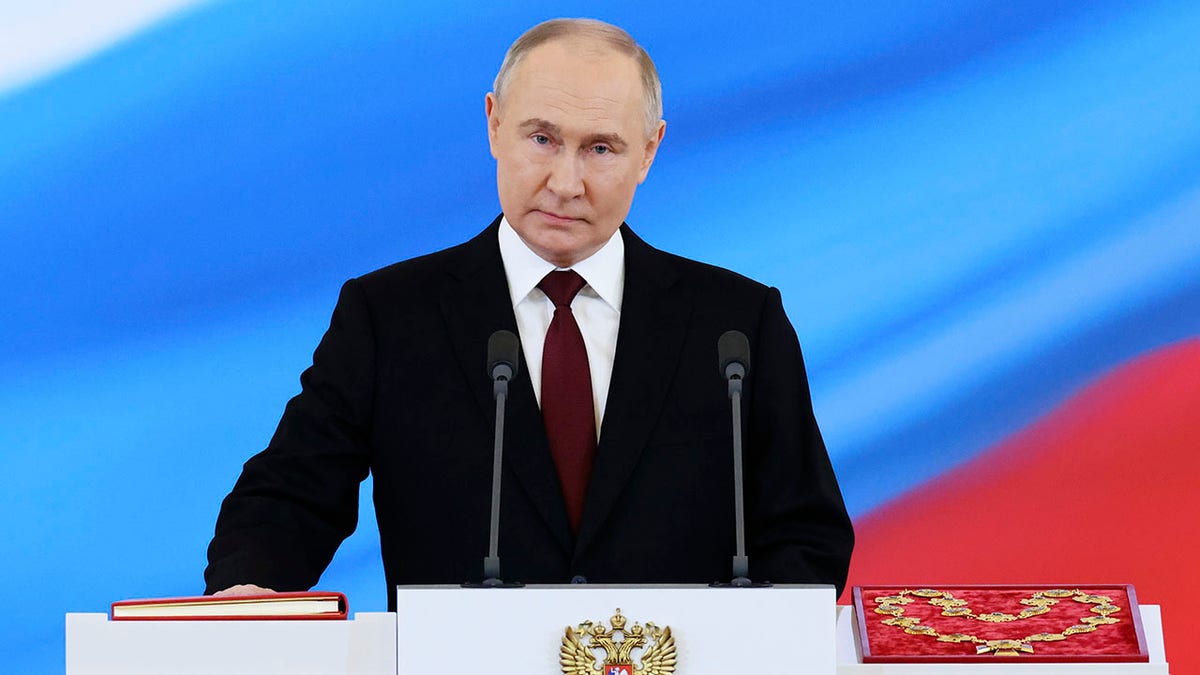
Vladimir Putin takes his oath as Russian president during an inauguration ceremony in the Grand Kremlin Palace in Moscow on Tuesday, May 7. (Alexander Kazakov, Sputnik, Kremlin Pool Photo via AP)
During Tuesday’s inauguration speech, Putin – almost certainly referring to Ukrainians living in the regions annexed by Moscow – thanked the "citizens of Russia in all regions of our country, residents of our historical lands who defended the right to be together with the Motherland." Putin believes that Russia has a rightful claim to Ukraine its statehood originated from "Kievan Rus," the land that is currently occupied by modern Ukraine.
Seventy-seven percent of Russians support the actions of its military in Ukraine, effectively agreeing with Putin, according to the Levada Center. The same percentage of Russians believe that Russia will win the war. Levada is an independent polling agency designated by the Russian state as a "foreign agent" for expressing views that are unfavorable to the Russian government.
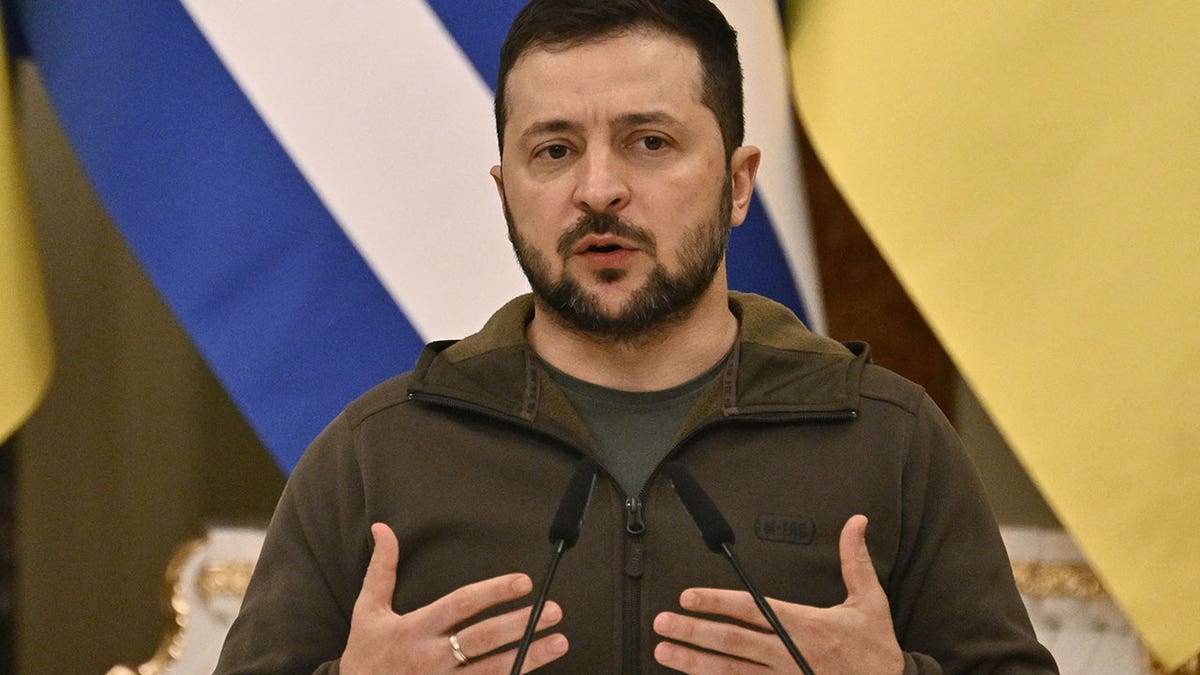
President Volodymyr Zelenskyy said on Monday that vital U.S. weapons were starting to arrive in Ukraine in small amounts and that the process needed to move faster as advancing Russian forces were trying to take advantage. (Genya Savilov/AFP via Getty Images)
Second, Russian intelligence services will likely ramp up their hunt for Ukraine’s President Volodymyr Zelenskyy in an attempt to assassinate him. On Saturday, the Russian government added Zelenskyy to the list of wanted criminals. The Russian Interior Ministry justified the search warrant for the Ukrainian president by stating that is "under an article of the criminal code."
Zelenskyy has been on the target list since the beginning of Russia’s invasion in February 2022 and has survived multiple assassination attempts. A day before Putin’s inauguration, Ukraine’s counterintelligence services reportedly disrupted a Russian covert operation aimed at infiltrating Zelenskyy’s security team and taking him hostage or killing him.
Russia has a targeted assassination program governed by the federal law, "On Countering Extreme Activity," that was approved by Putin in 2002, two-and-a-half years after he assumed the presidency, and updated in 2006. This law already allows Russian intelligence services to "eliminate (likvidirovat) Zelenskyy and other military and political leaders of Ukraine as ‘persons presenting a threat to the Russian state.’"
Placing Zelenskyy on the "wanted list" sends a signal to Russian security services that capturing or killing him is a priority for the Kremlin.
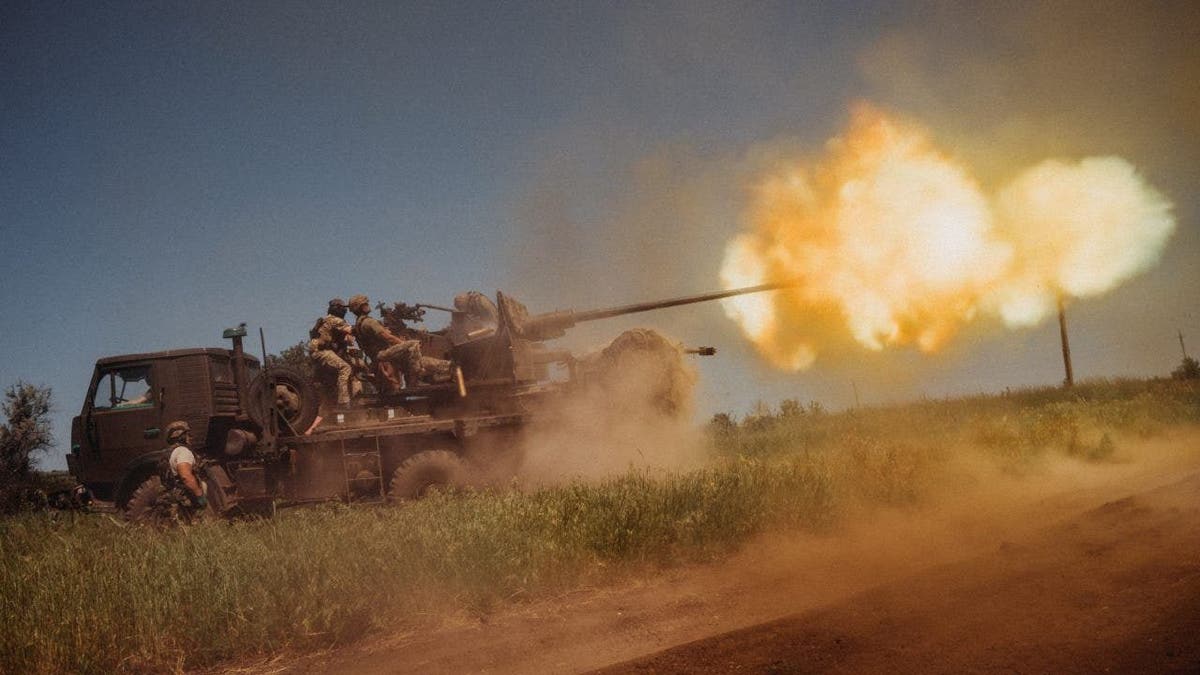
Ukrainian soldiers fire rounds into Russian positions outside Bakhmut, Ukraine, on June 19, 2023. (Wojciech Grzedzinski/Anadolu Agency via Getty Images)
The Russians will likely intensify their efforts to eliminate Zelenskyy on or after May 20, the day when his presidential term officially ends. Last November, Zelenskyy canceled the 2024 presidential election, arguing that Ukraine must concentrate all its resources on fighting Russia, which prompted Moscow to consider him illegitimate as the leader of Ukraine.
Third, Russia will intensify its non-kinetic confrontation with Washington. While Russia fears a direct war with the U.S. and NATO, because of our superiority in conventional arms, it views the risk of the erosion of its strategic buffer zone, on which it relied for its security for centuries, even more. Washington’s continuous support provided to Ukraine has exacerbated Russia’s fears of a future conflict with NATO.
Moscow believes a direct kinetic U.S.-Russia war is "inevitable" in the long run. The Russian General Staff made this intelligence assessment based on the long-standing U.S. policy seeking to democratize Russia’s post-Soviet neighbors in Eurasia and Washington’s stated intentions to accept Ukraine into NATO, an adversarial alliance.
CLICK HERE TO GET THE OPINION NEWSLETTER
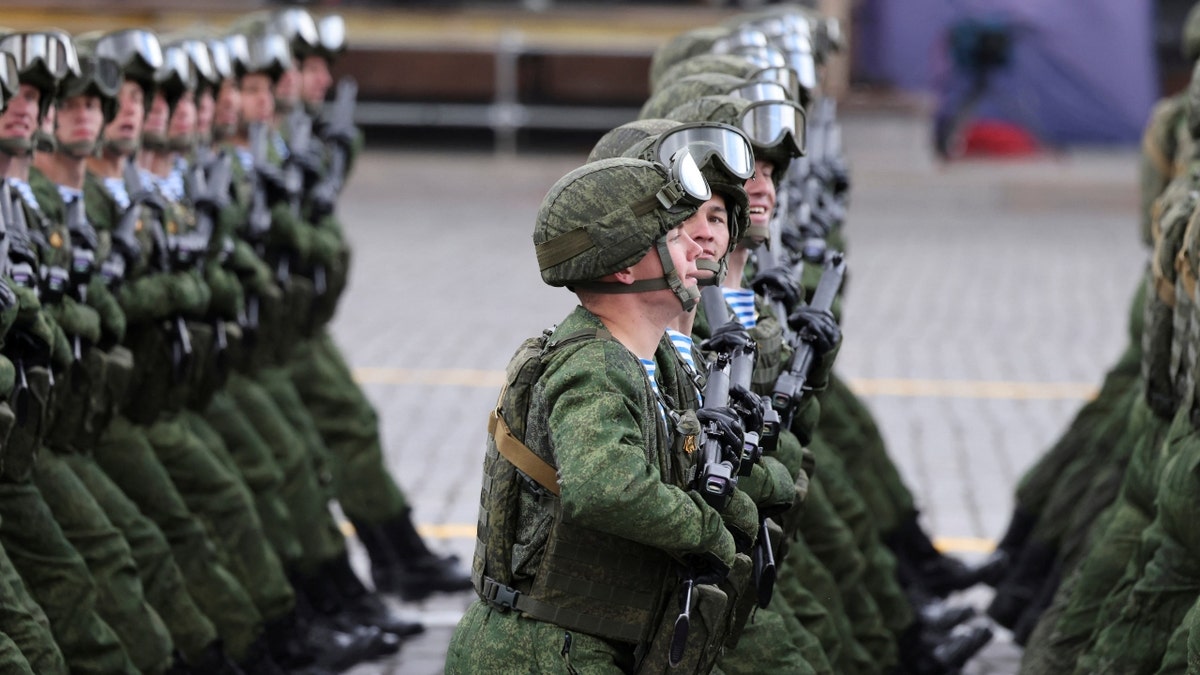
Russian service members march during a military parade on Victory Day, marking the anniversary of the victory over Nazi Germany in World War II, in Red Square in central Moscow, May 9, 2022. (Reuters/Shamil Zhumatov)
Last week, four Russian military aircraft breached the Alaska Air Defense Identification Zone (ADIZ), but didn’t enter U.S. airspace, according to the North American Aerospace Defense Command (NORAD). Russia periodically flies strategic bombers close to our borders. These practice runs are intended to test our responses and to signal the readiness of the Russian military for a full-on war with the United States over control of the post-Soviet regions. Russian weapons systems are already capable of striking targets throughout the United States and Canada from stand-off distances – that is, without entering U.S. sovereign airspace to deliver the weapons.
Russian intelligence services also will likely intensify their efforts to arrest U.S. citizens traveling to Russia in a effort to rattle the Biden administration and to accumulate a list of candidates to trade with Washington for high-value Russian operatives held in U.S. prisons. On Tuesday, a U.S. Army soldier was detained in Vladivostok on charges of theft. Having had a number of prisoner swaps that Putin almost certainly feels were favorable to Russia, Moscow likely concluded that it can manipulate the Biden administration into giving up Russian assets valuable to Putin.
Finally, what Putin will not do is invade a NATO nation. Despite such claims made by Washington politicians, such a move would be suicidal for Putin as it would trigger NATO Article 5 Collective Defense. Putin is acutely aware of Russia’s conventional inferiority visa-a-vis NATO.
Putin routinely uses Russia’s nuclear trump card to intimidate the West and would likely authorize a tactical nuclear strike in the theater such as in Ukraine in certain scenarios, but those are high on the escalation ladder. But, as a rational actor, he would not intentionally pick a fight in which Russia would face the might of NATO’s entire war-fighting machine. Such a claim is illogical. It is also refuted by multiple assessments made by the U.S. intelligence community.
CLICK HERE TO GET THE FOX NEWS APP
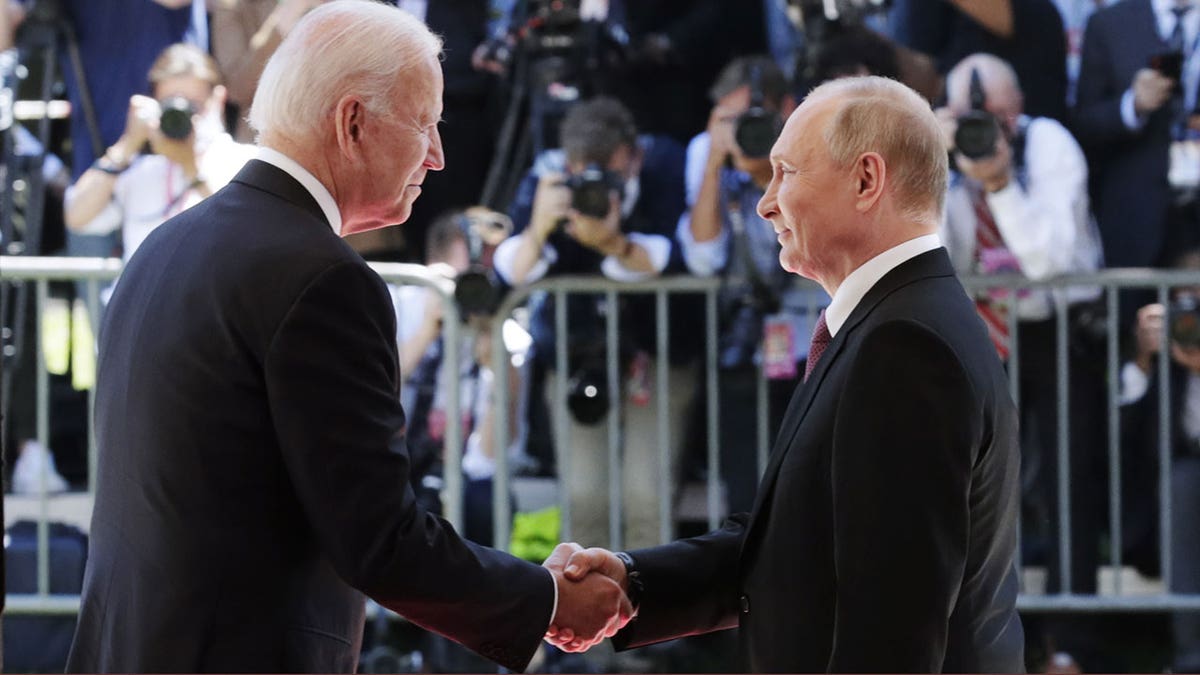
President Biden and Vladimir Putin shake hands as they meet at the Villa La Grange in Geneva, Switzerland, on June 16, 2021. (Mikhail Metzel/TASS)
The 2024 Annual Threat assessment reveals that "Russia almost certainly does not want a direct military conflict with U.S. and NATO forces and will continue asymmetric activity below what it calculates to be the threshold of military conflict globally."
The following excerpts from unclassified intelligence reports debunk the idea that Russia has the military and economic capacity to invade a NATO country, triggering a war with NATO: "Russia has suffered more military losses than at any time since World War II – roughly 300,000 casualties and thousands of tanks and armored combat vehicles" and "Moscow's military forces will face a multi-year recovery after suffering extensive equipment and personnel losses during the Ukraine conflict."
The same report reveals that "the Russian military has and will continue to face issues of attrition, personnel shortages, and morale challenges."








































